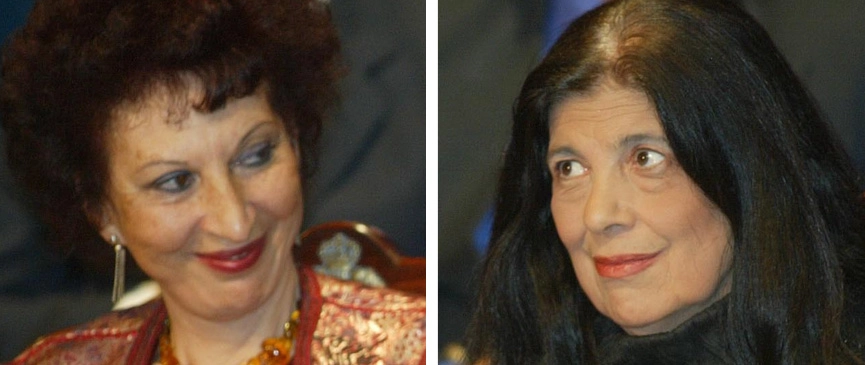Main content
Fatema Mernissi and Susan Sontag Prince of Asturias Award for Literature 2003

Fatema Mernissi and Susan Sontag provided complementary perspectives in a dialogue between cultures.
Fátima Mernissi (Fez, Morocco, 1940 - Rabat, Moroocco, 2015) studied Political Science and, with a scholarship from the Sorbonne, earned her doctorate from Brandeis University (USA). Mernissi wasone of Arab intellectualism's most eloquent voices and a world authority on Koranic studies.
A prolific author who has been translated into several languages, her first book, "The Veil and the Male Élite: A Feminist Interpretation of Islam", is a historical study narrating the key role of the wives of Mahomet. As do all her books, "Doing Daily Battle: Interviews with Moroccan Women" (1991) - in which she interviews peasant women, women labourers, clairvoyants and maidservants - sets out to defend women. This defence is founded upon on a humanistic approach whereby women are encouraged to take up their role in society and to fight by using the power of language, the main weapon, in her view, for achieving equality and deep-seated change. She presented "Islam and Democracy: Fear of the Modern World" in Madrid in 1992, and her autobiography, "Dreams of Trespass: Tales of a Harem Girlhood", came out in 1995. Other works include "Forgotten Queens of Islam", "Scheherazade is not a Moroccan", and "Islam, Gender and Social Change", which are considered classics of contemporary literature and an intellectual benchmark by which to understand the Arab world.
Fatema Mernissi was a lecturer at the Mohamed V University of Rabat, and a research scholar at the University Institute for Scientific Research, in the same city.
Susan Sontag (New York, USA, 1933 – 2004) had Arts degrees from the universities of Chicago and Harvard. She published her first novel, "The Benefactor", in 1963, followed shortly after by "Against Interpretation" (1966). She was posted to Vietnam as a war correspondent in 1968, and was profoundly affected by the conflict. She has a long-standing interest in the cinema, and travelled to Sweden, where she made "Duet for Cannibals" (1969) and "Brother Carl" (1971), whilst also writing such books as "Trip to Hanoi" (1968) and "Styles of Radical Will" (1969).
She wrote "Under the Sign of Saturn" in 1972 (it was published in 1980), and filmed the Israeli troops during the Middle East War, directing a film called "Promised Lands" in The Golan Heights. She wrote "Illness as Metaphor", whilst ill from cancer, and published "AIDS and its Metaphors" in 1989. She has written on the cinema and theatre and has edited selected texts of Roland Barthes and Antonin Artaud. "The Volcano Lover" came out in 1992, and she travelled to Sarajevo the following year to give class at the Academy of Drama and to stage "Waiting for Godot" (in collaboration with other intellectuals). Her novel "In America" (1999) has been granted the National Book Award in USA and the Jerusalem Prize.
In 1993 she co-founded the International Parliament of Writers, and in 1994 she received the Montblanc Prize for her cultural work in Bosnia.
(Note: Susan Sontag photograph by Annie Leibovitz).
End of main content
